- Home
- slideshows
- miscellaneous
- I'm a bartender - here are 11 things bartenders do that most people don't realize
I'm a bartender - here are 11 things bartenders do that most people don't realize
Before the bar even opens, we have to do a marathon of prep work.

In some states, we need to sweet-talk liquor reps so we can get the best bottles on the shelves.
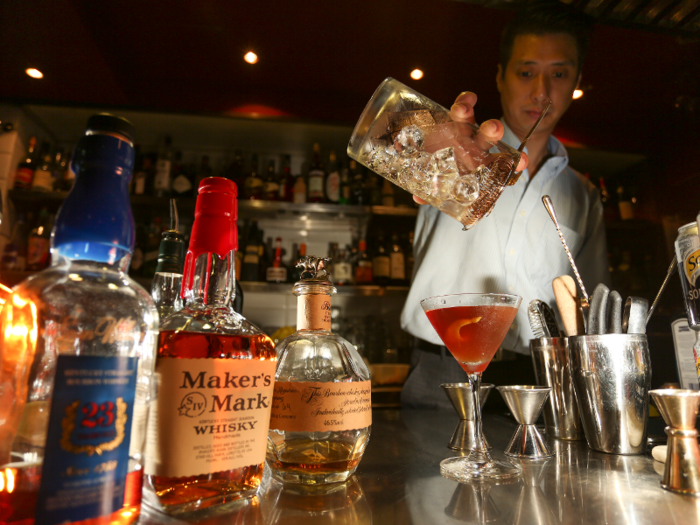
Liquor reps are often the gatekeepers to which bars get the small allocation of their product.
Being in an ABC state, where the government controls hard liquor sales, means bartenders need to do a lot of behind-the-scenes sweet-talking so that we can get the best bottles of booze on our shelves.
When reps from liquor companies drop in our bars, we literally bat our eyes and beg the reps to help us get more than one bottle on the next order — especially if they rep a high-demand bottle like Blanton's.
Of course, if we do get additional bottles, it would likely come at the expense of another bar, who wouldn't get their second bottle or any bottles at all, due to the low allocations of Blanton's in ABC-controlled states.
We spend hours (and hours) refining cocktails for the menu — even the classics.
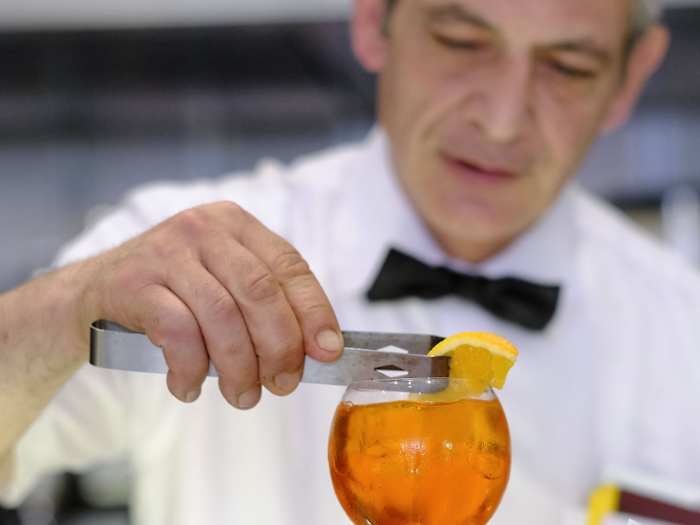
People often don't realize that just because a menu cocktail only contains the "classic" drinks — cocktails with familiar names like a mojito, Manhattan or gimlet — it doesn't mean we didn't labor and anguish over how exactly it would be made and presented to you.
You have to factor in so many elements, like the brand you'll be using for the base spirit, how you make your syrups, the tools of the bar and the way it's set up, and the glassware you have available.
A gimlet is quite simple on the surface. But the way we end up serving our house gimlet to you required quite a bit of thought and consideration.
Bartenders need to keep an eye on and wrangle rowdy customers who are on the cusp of being over-served.
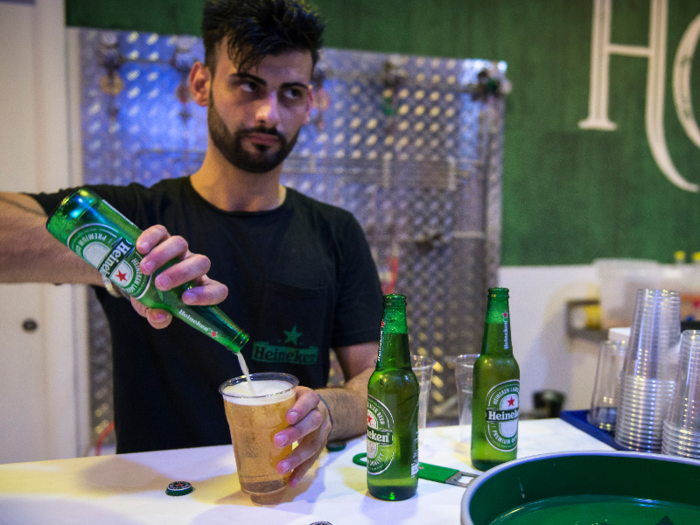
One thing people often don't realize about their bartender: just how incredibly liable we are for your actions if you do something dumb after we've served you alcohol.
The prospect of you getting into trouble after leaving our bar is terrifying, and not just because we're thoughtful humanitarians.
It's in our enlightened self-interest to make sure you're drinking safely, because in most states, we're on the hook legally and financially in a lawsuit if something bad happens when you leave.
Something to keep in mind if you want to balk about being cut off.
We clean. And clean some more.
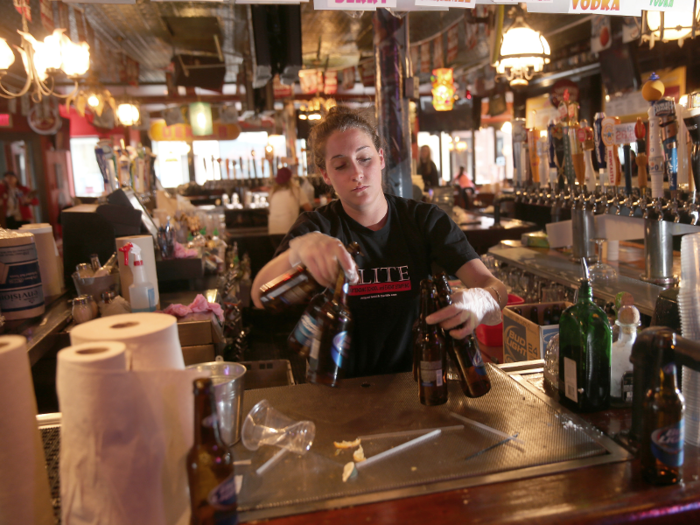
Sometimes being a bartender feels like being a healthcare practitioner — more on that later — but unlike a doctor in a clinic, we don't go home after we see our last patient.
We're still closing down the bar long after the last patron has left. The cleaning process is about as lengthy as the prep process, if not lengthier.
We wipe down every bottle of syrup, citrus, booze, and bitters. There's an endless supply of stickiness to subdue on every surface. You have to pump and date wines. Restock everything. Run dishes. The list feels endless.
For this reason, you don't have to feel totally guilty as a customer about lingering after last call.
But you absolutely should leave if the bartenders are no longer doing much cleaning, and instead are staring at you, waiting for you to get out so that they can clean the last bits of the bar, like the floors or the bar top.
We continue our bartending education, which can include immersive travel experiences or attending cocktail week events.
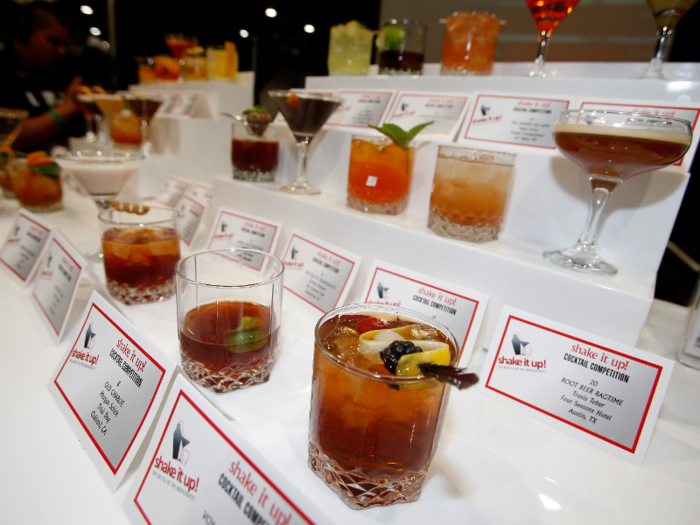
Summer camp for bartenders is as ridiculously fun as it sounds, and I was lucky to go myself this past summer. Experiences like that are part of a large effort many bartenders make to be students of the craft outside of work hours.
Similarly, many cities host cocktail weeks that help mixologists continue their education.
Portland Cocktail Week, which just wrapped up its 10th year, is one of the most well known, and literally features "majors" for bartenders who are selected to be "students" in topics like Applied Science, Anti-Waste, and Consulting.
We give you therapy.
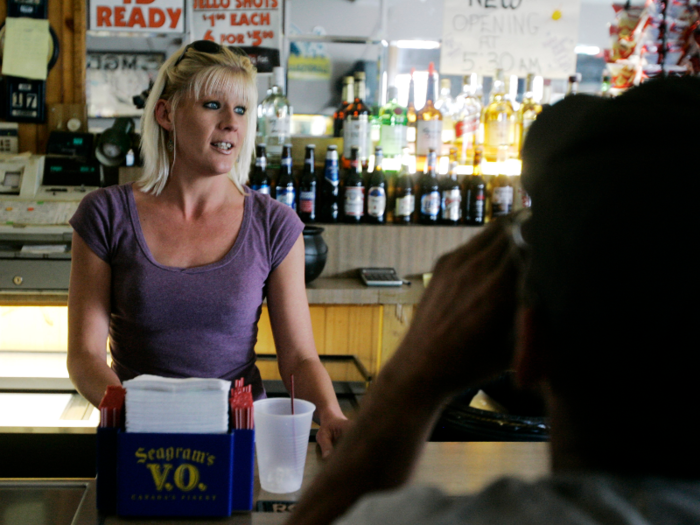
I think the most entrepreneurial idea that ever came to me when bartending was to open a bar where all the bartenders would be licensed therapists.
After all, we do it for free already. Even though we're totally unqualified, we end up giving a lot of advice about your woes and heartbreak.
This is an aspect that I don't mind at all.
What I do mind is when the next person to saddle up at the bar expects a smiling, light-hearted bartender when we're fresh from being in the thick of another person's heaviness.
We're constantly memorizing — not just how to build cocktails, but your names and drink orders.
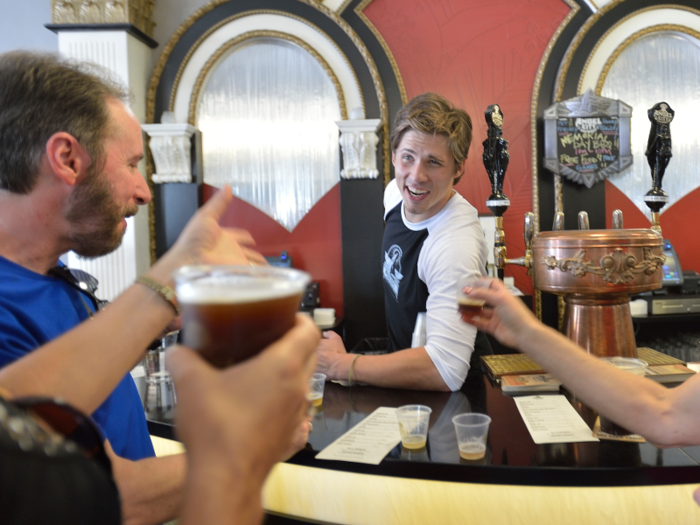
There are hundreds of cocktails to memorize. And I won't lie — I usually end up having to look up at least one recipe on a busy night.
But one thing you can't Google is a returning customer's name and drink order, and that kind of recall can really build up your reputation with guests.
Customers can meet us halfway in this regard. A little congeniality can go a long way: At my bar, we practically compete with one another to make our favorite regular's drink first — Roku gin, splash of Elderflower tonic, with a lime — even if there's a line of people waiting.
We often have to train support staff in the middle of busy shifts.
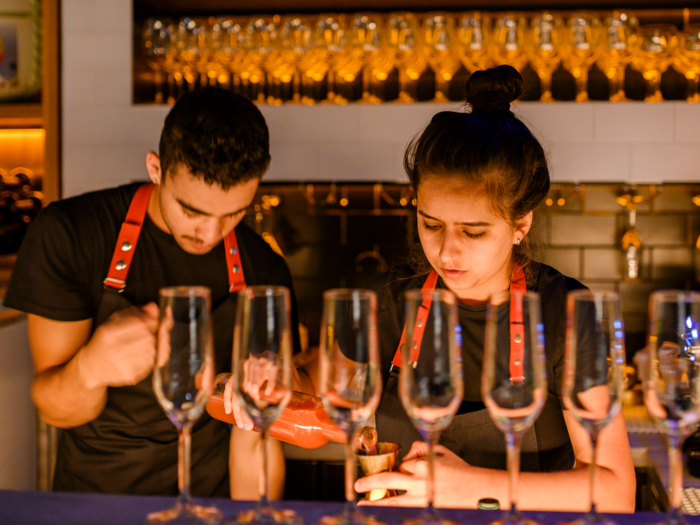
Because of the high turnover in the service industry, on any given night, there's a decent chance that we're training a new bartender or barback.
The divided attention can be a real challenge at times. It's hard enough to answer a guest's question when we're making four different cocktails, much less when a training barback is asking questions at the same time.
It's so challenging that more than once I've sent training barbacks on a wild goose chase of sorts — like finding a lesser-used type of fruit that required descending two flights of stairs to retrieve from cold storage — just to have a question-free period of laser-focused bartending.
We constantly have to answer a lot of idiotic — and insulting — questions from customers.
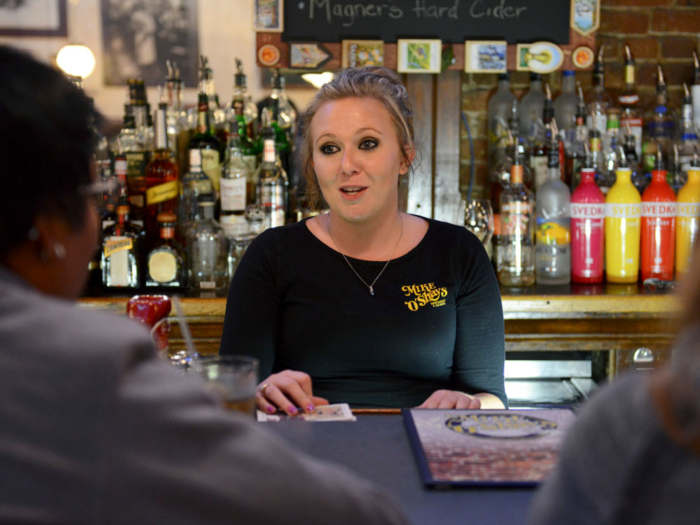
Even though trainees can be distracting at times, I wouldn't consider any of their questions stupid, because they have so much to learn.
Guests, on the other hand, ask downright insulting questions all the time, like what our "real" jobs are, and if we know how to make an old fashioned (spoiler alert: we do).
Those questions and comments are pretty emotionally draining. And they can have an impact on my work — like when I'm not able to give glowing treatment to the truly lovely customers who deserve it because of the bad ones who came before them.
And we pay taxes, despite what some people may think.
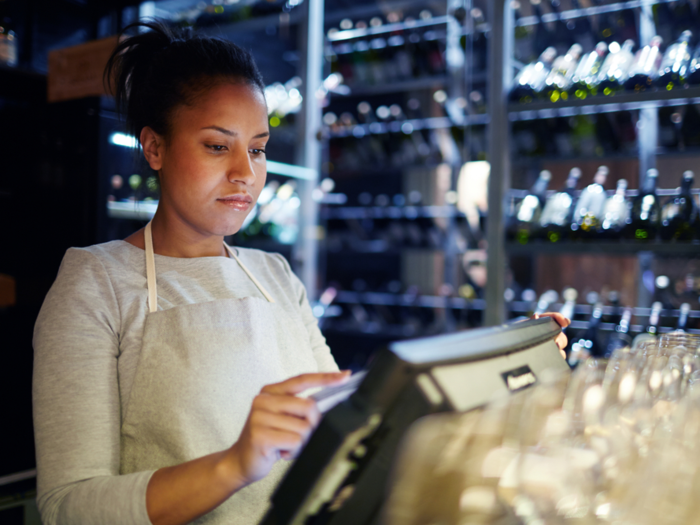
Bartenders pay a lot of taxes.
This feels weird to clarify, and yet there seems to be some confusion on this issue.
But unless you earned too little to owe federal income tax, I can say that each one of us paid more in income tax than FedEx in 2018.
Credit card tips are automatically taxed in most systems, and the vast, vast majority of workplaces report and tax cash accurately.
So please, don't feel like you get a pass to tip less when you're tipping in cash.
Popular Right Now
Popular Keywords
Advertisement